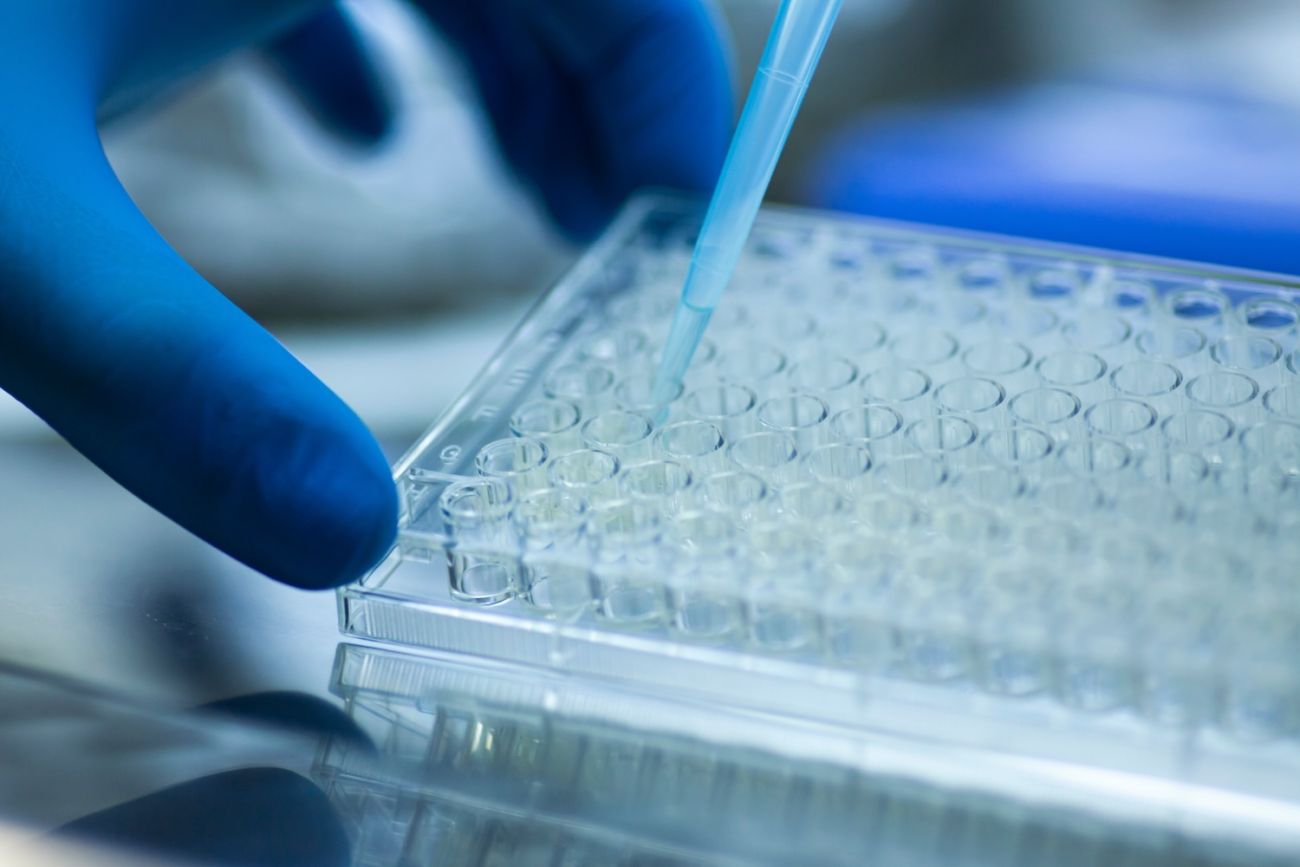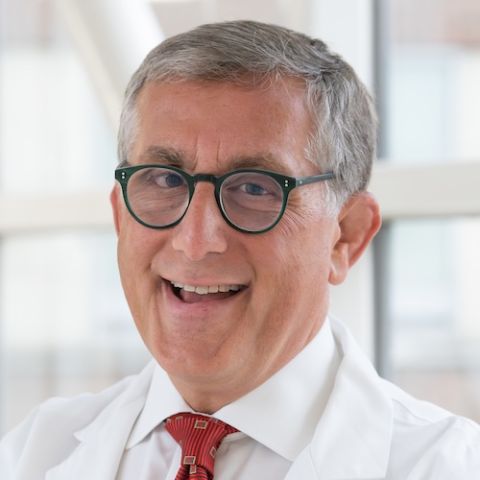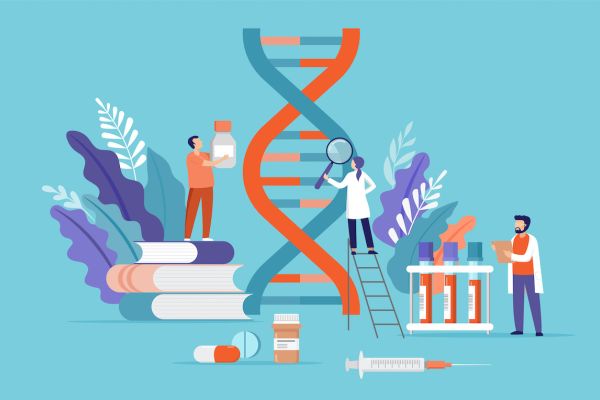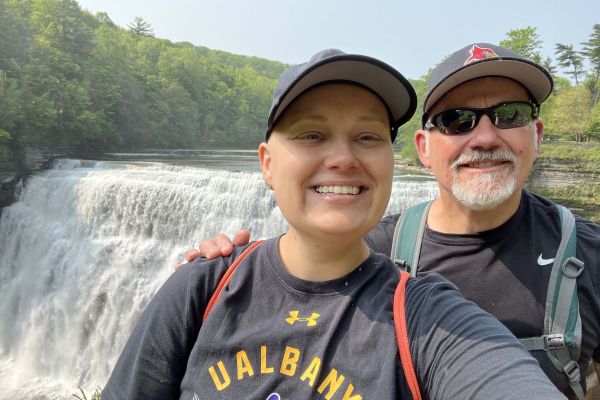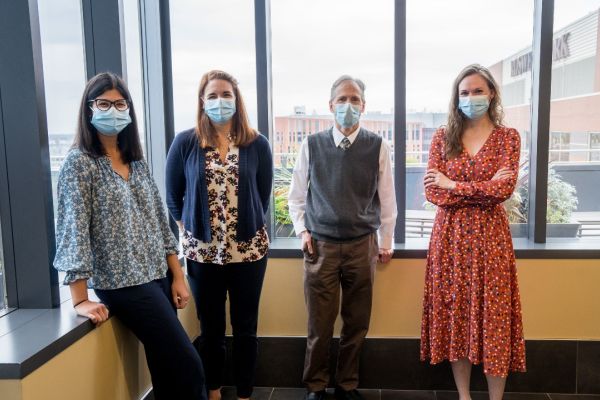More than a decade ago, actor Angelina Jolie made headlines by announcing in an op-ed piece in the New York Times her decision to have a bilateral mastectomy to greatly reduce her risk of developing breast cancer in the future. Her decision was based on genetic testing that revealed that she was positive for a BRCA1 gene mutation that she had inherited from her mother, and which led to her mother’s early death from cancer at age 56. She wrote that by taking this step, she was being proactive so that, someday, she could hug her own grandkids, a joy denied to her mother.
“When we think about genes, we think if you have a predisposition for something, then you will develop that condition. But it’s not an all or none thing,” says Kenan Onel, MD, PhD, Chief of Clinical Genomics and Director of the Center for Precision Oncology and Cancer Prevention at Roswell Park Comprehensive Cancer Center.
“In the general population, breast cancer occurs in one in eight women over the course of their lives. With BRCA1, it’s more like one in two women. That means one of those two women will not be diagnosed with breast cancer with that particular gene,” Dr. Onel says.
How family history relates to risk
Genetic testing can help patients fully understand their genetic makeup, what mutations they have and how that translates to the risk of developing cancer in the future. If there’s a family history of certain cancers associated with genetic mutations, including breast, ovarian, pancreatic, prostate, colon and endometrial cancers, knowing about that increased risk may mean a need to be monitored more closely. Guidelines from the National Comprehensive Cancer Network and professional medical societies suggest anyone diagnosed with those cancers, or their immediate relatives, consider genetic testing.
“People might not talk about their family history, so people might not know their risk,” Dr. Onel says. “A positive family history, where there is a history of cancer, is certainly helpful, but a negative family history is less useful because there are lots of reasons that family histories can appear negative but are not.” An example would be if someone’s relative had cancer but didn’t tell anyone or if the cancer was not diagnosed until after they died.
“On top of that, an increased predisposition is not a pre-ordination,” Dr. Onel says. This means having a higher risk does not mean a person is guaranteed to develop cancer. “A person who is at high risk for breast cancer is someone who, based on family history and personal characteristics, has a one-in-five lifetime risk of cancer, compared to the one-in-eight lifetime risk of someone with no family history.”
Should you consider genetic counseling?
A consultation is recommended for persons concerned about their risk for cancer due to a personal or family history of cancer.
Why knowing matters
If knowing your family history and genetic risk still can’t predict whether a person is guaranteed to get cancer, why does it matter if you know?
People with a genetic mutation that can put them at higher risk for developing cancer can have access to precision monitoring and screening practices tailored to minimize or even eliminate their increased risk. For example, a woman with a family history of breast cancer might have an annual breast MRI starting in her 20s with an annual mammogram starting in her 30s — much earlier than the recommended age of 40; men with a family history of prostate cancer would be recommended to have their first screening tests at age 40 instead of age 45, or even earlier — 10 years earlier than the age at diagnosis of the prostate cancer in their immediate family.
Genetic screening also enables people to give a more complete health history to their doctors, who might order different tests if symptoms indicate cancer.
“There are certain kinds of cancers that if you see a patient with them, you should always think genetics,” advises Dr. Onel. This includes adrenocortical carcinomas, pheochromocytomas, paragangliomas and certain kinds of brain cancers.
Dr. Onel also stresses that men should know about the history of breast cancer in their family. “It’s possible a man whose sister has an inherited predisposition to cancer may not be at increased risk for breast cancer himself, but he might be at risk for other cancers, and if he has daughters, they might be at increased risk for breast cancer if he also inherited those genes. Knowledge is power not just for you but for your family. Each offspring has a 50/50 chance of inheriting the mutation.”
How Roswell Park can help
Since joining Roswell Park in early 2024, Dr. Onel has built a new Department of Clinical Genomics to offer genetic testing and then care for individuals and families at increased risk for cancer because of their genetics or family history.
“We offer genetic testing to our patients through our genetic counselors. Genetic testing, however, is just the first step,” Dr. Onel explains. “What our patients and their families need is what comes after testing. They need genetic medicine experts to care for them and keep them safe. That’s what we have done. Here at Roswell Park, we have started the country’s first medical home for individuals and families at high risk for cancer because of their genetics or family history.”
Dr. Onel started this new department because he found patients had no one to turn to for help and guidance after they had been diagnosed with an inherited predisposition to cancer. “I felt we just had to do something to help these people and fix this terrible gap in care,” he recalls.
It is his goal for this to become the standard of care for patients and their families. “Knowledge is power and it allows you to take action, to take control of your destiny,” Dr. Onel says.
“For people with mutations in those genes linked with cancer, we know what to do to keep them safe. If you have an inherited predisposition to something, it’s there regardless of whether you know it, so you might as well know. Then you can do something about it,” he says. “No one else in the country has this medical specialty home, this center of gravity, that exists to ensure that all patients have access to cutting-edge precision cancer prevention. We aim to help not just patients seen at Roswell Park and their families, but all families in our community. Our goal is to work in partnership with their primary care doctors and other specialists to ensure that they stay well. Like Angelina Jolie, everyone deserves the opportunity to hug their grandchildren.”
